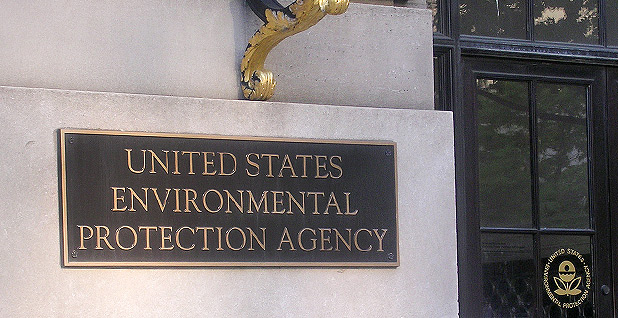“They want to box everyone out of the process who might call their policies into question.”
By Julia Conley, staff writer for Common Dreams. Published 6-25-2019

EPA headquarters in Washington. EPA/Flickr
The Trump administration is set to introduce a new rule, without giving the public a chance to weigh in, which will allow officials at the Environmental Protection Agency to deny information requests—similar to how the CIA does so—by falsely claiming requested records are unavailable.
A rule, signed by EPA Administrator Andrew Wheeler, will expand agency officials’ authority to reject a FOIA request by labeling it as “non-responsive,” meaning the agency has decided to withhold the requested records or has claimed certain exemptions from FOIA.
President Donald Trump’s Interior Department has previously expanded officials’ authority over FOIA requests, setting up an “awareness review” under which they have 72 hours to review any request which pertains to them.
The D.C. Circuit Court of Appeals ruled in 2016 that agencies have “no authority in the statute for the government” to redact certain information from a FOIA response “on the basis that the information is nonresponsive.”
I haven’t seen the document yet, but the D.C. Circuit has already ruled this is unlawful: “whether to release or withhold a record or a portion of a record on the basis of responsiveness . . . and to issue ‘no records’ responses.” https://t.co/4WCy3gm5Pw #FOIA
— James Valvo (@JamesValvo) June 25, 2019
As Nate Jones, director of the FOIA Project at the National Security Archive, wrote, the EPA and other agencies appear to be emulating the CIA—which has long been permitted to withhold information from the public while other government agencies have been comparatively expected to answer to FOIA requests.
This looks to me like EPA is trying to emulate what CIA does w many #FOIA s. It claims they are exempt and won’t even search and review them. Agencies have long been jealous CIA ability to do this… https://t.co/OUuC7Mrw05 1/
— NSA Nate📄 (@NSANate) June 25, 2019
But CIA got the ability to do this after Congress (STUPIDLY) passed the 1984 Operational files exemption (https://t.co/kWHfntzt3f). EPA is apparently doing an end run against Congress, the rulemaking process, and DC court rulings on #FOIA responsiveness. 2
— NSA Nate📄 (@NSANate) June 25, 2019
Under the new rule, officials will also be able to file their reply to requests as “no records,” meaning no documents or materials could be found to satisfy a request—even if the record was simply withheld by the agency at an official’s discretion.
Public Employees for Environmental Responsibility (PEER) noted that after receiving a response to a FOIA request stating only that the EPA was “non-responsive” without an explanation, the member of the public or press who filed the request will likely have a difficult time proving records or materials are being withheld unlawfully.
“It’s exceptionally difficult to litigate on the ‘basis of responsiveness,'” Kevin Bell, staff counsel at PEER, told The Hill. “Discovery is almost never granted in those situations. Short of being an administrator or an EPA employee, there’s no opportunity for oversight.”
The rule is expected to be entered into the Federal Register as early as Wednesday, and will reportedly not be subject to a public comment period as new policies often are. The secrecy with which the Trump administration was pushing the rule through drew condemnation from critics.
“They want to box everyone out of the process who might call their policies into question,” tweeted Seth D. Michaels, communications officer for the Union of Concerned Scientists.
and no public comment period on this new rule. they want to box everyone out of the process who might call their policies into question. https://t.co/orFdhwmx1d
— Seth D. Michaels (@sethdmichaels) June 25, 2019
This is the face of Fascism in America: Denying public access to non-classified and otherwise non-embargoed EPA information that is otherwise available under the Freedom Of Information Act. WHAT IS THE EPA HIDING?
— Delia O’ Riordan (@Delia1donegal) June 25, 2019
Regional EPA offices will also no longer handle FOIA requests directly under the new rule, forcing requesters to go through the national EPA office which will then delegate to a smaller location.
“The changes will add to the already-large backlog of requests and will further degrade trust between the federal government and the public,” wrote JPat Brown, executive editor of MuckRock.
This kind of policy erodes trust between agency and requester, which in turn leads to appeals and/or lawsuits being the default, which in turn leads to agencies adopting more restrictive policies to cut down on their backlog, which in turn erodes trust … etc
— JPat Brown (@resentfultweet) June 25, 2019
Editors’ note: In case you forget why a functional and vigilant EPA is necessary, this might jog your memory.
This work is licensed under a Creative Commons Attribution-Share Alike 3.0 License.

